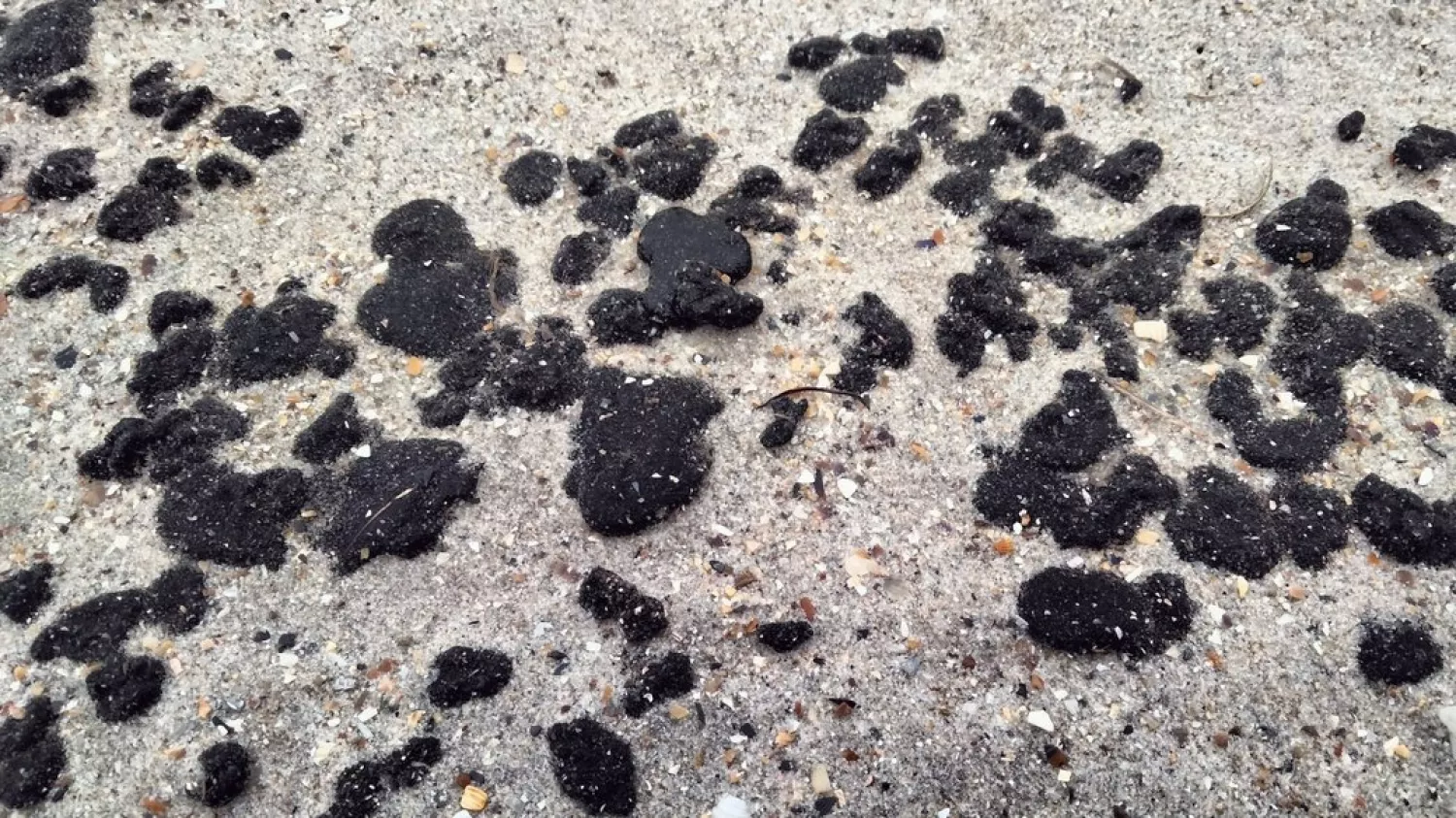Russian tanker accidents in the Black Sea: fuel oil clots found on the coast of Odesa region
- Svitlana Ivanchenko
-
•
-
18:03, 03 February, 2025
New fuel oil clots have been found on the coast of Odesa region, near the village of Lebedivka in Bilhorod-Dnistrovskyi district. These are the consequences of the Russian oil tanker accident in the Black Sea.
According to the State Environmental Inspectorate, experts examined about a kilometre of the coastal strip and found localised pollution. In particular, clots of a viscous substance resembling an oil product. It is noted that their size ranges from one to five centimetres.
The inspectorate informed that seawater samples were taken for laboratory tests. Samples of the pollutant will be sent to the UkrSCES.
It should be noted that on the coast of Odesa Oblast, five sites have already been spotted with discharges of Russian fuel oil from oil products weighing up to half a tonne. Environmentalists believe that it may be particularly dangerous during the warming summer period.
The Russian tanker accident
On 15 December 2024, near Cape Panagia in the Kerch Strait , the «Volgoneft» tanker ran aground, and 4 tonnes of fuel oil could have leaked into the sea. Later it became known that another tanker, the «Volgoneft-239», began to sink next. Its hull broke into two parts after being hit by a wave.
The leakage of fuel oil from two Russian tankers in the Black Sea caused a large-scale environmental disaster. The damage caused to the Black Sea ecosystem exceeds $14 billion.
Animal rights activists have recorded 32 deaths of cetaceans, including whales, dolphins and porpoises, following the accident with two Russian oil tankers «Volgoneft-212» and «Volgoneft-239». The deaths of the animals are most likely related to the fuel oil spill, which has already reached Feodosia, Alushta and Sudak.
As of 27 January, employees of the National Nature Park «Tuzly Estuaries» had collected up to four kilograms of fuel oil. At the same time, they started removing fuel oil near the Danube Biosphere Reserve on the coast of Odesa region.
Later, state ecologists reported that the Black Sea coast was again polluted with oil products.
In addition, the sea coast in Odesa region is monitored daily at designated points to quickly detect and localise fuel oil spills.
